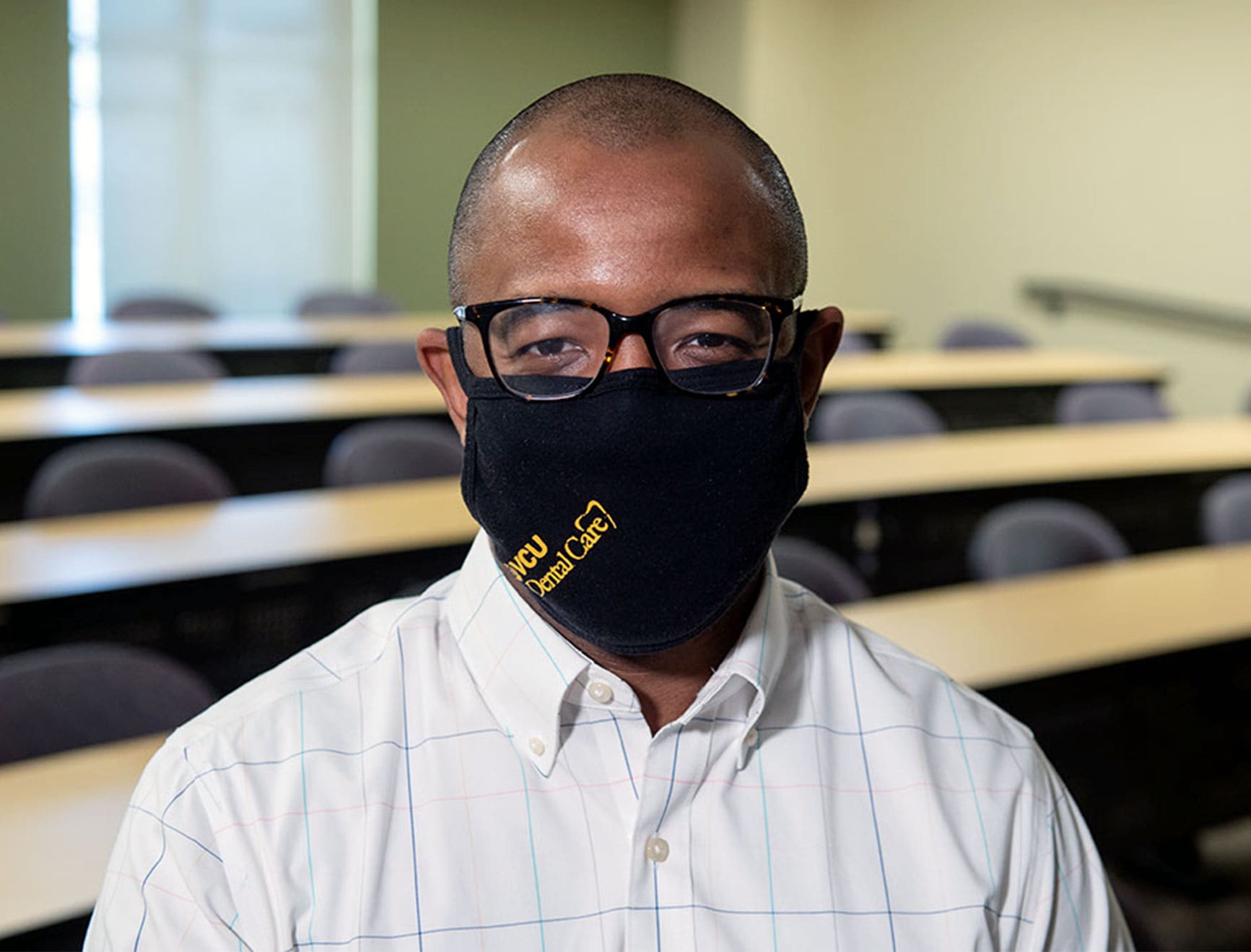Virginia Commonwealth University
Annual Report 2020-2021
History lessons

IIn his dental ethics class, Carlos Smith turns to history to explain medical mistrust today. He’s also part of a movement to ensure everyone at VCU understands the roots of health disparities.
Carlos Smith thought he had thoroughly researched VCU before applying to teach in the School of Dentistry. But soon after arriving in 2015, he came across psychology professor Shawn Utsey’s documentary, Until the Well Runs Dry: Medicine and the Exploitation of Black Bodies. The documentary details the practice of disinterring cadavers for purposes of medical dissection and its legacy at the Medical College of Virginia.
“I was just floored,” Smith said. “I thought, ‘I have to teach this.’”
Smith, a general dentist and ethicist, is the director of the second-year dentistry course, Ethics, Professionalism and Ethical Decision-making. After seeing the documentary, he began to incorporate details about how Black bodies were used for scientific experimentation, and drew a line to present-day medical mistrust among vulnerable communities.
“In Richmond, this history is literally across the street,” he said. “More than recent history, this is a current lived experience for many of our patients.”
Most of his students didn’t already know about the history of health disparities. In fact, in the wake of the murder of George Floyd in 2020, students expressed a need for more discussion throughout the dentistry curriculum.
The Office of Health Equity’s History and Health initiative is working to do just that. Through events, discussions, and learning modules open to VCU students, faculty, staff, and the wider community, the initiative aims to bring attention to longstanding inequities in medical treatment, better understand VCU’s history, and contribute to a health process that will bring meaningful change.
“We want to make sure that every person who either works for or has gone to school at VCU leaves with an understanding of this history and how it can inform their practice, whatever their career path is,” Smith said.
History and Health has been a tremendous catalyst for not just having the racial equity conversation, but creating a body of knowledge to better position us to produce and sustain meaningful change.
Smith, the school’s director of diversity, equity and inclusion, is on the History and Health Steering Committee, which he said creates room for cross-pollination, dialogue and expansion across a number of different disciplines. He expects programming to expand beyond racial equity to include discussions of health disparities among LGBTQ, Latino, geriatric, and other populations.
“History and Health, under the direction of VCU Health's Office of Health Equity and Sheryl Garland, has been a tremendous catalyst for not just having the racial equity conversation,” Smith said, “but creating a body of knowledge for generations to come in order to better position us to produce and sustain meaningful change.”
He also hopes that the initiative underscores the need for diverse representation among faculty, staff, and the students who eventually become health care providers. Smith points to cluster hires nationwide and VCU’s own Institute for Inclusion, Inquiry and Innovation, or iCubed, as models for increasing and sustaining faculty diversity.
“We bring different perspectives to light,” he said. “The ethics course had been taught for years before me, and I can almost guarantee these issues were never discussed. But because of my lived experience, what’s important to me, the lens through which I view things, it became information that was not only taught, but was beneficial to all health care providers of all backgrounds and demographics, and ultimately enhanced patient relationships and health outcomes.
“I hope that it allows them to have greater compassion and awareness for everyone they interact with, and not just folks from vulnerable or historically disenfranchised communities.”